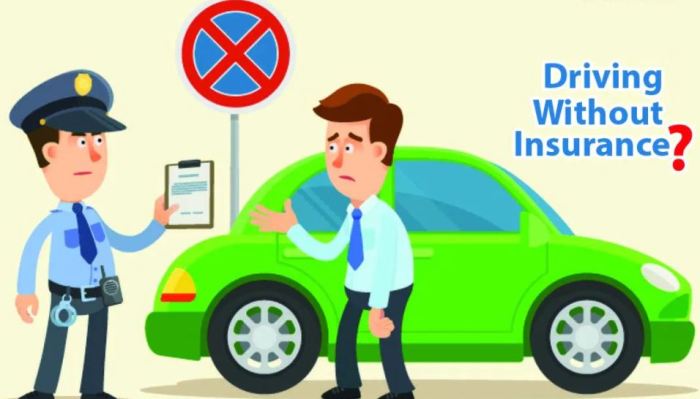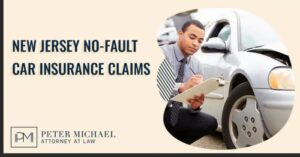
Can you register a car without insurance in NJ? This question often arises for individuals looking to save on insurance costs or facing financial hardship. While New Jersey requires drivers to carry minimum insurance coverage, there are certain exceptions and circumstances that may allow for registration without insurance. This article explores the intricacies of New Jersey’s car registration process, the financial responsibility law, and the potential consequences of driving without insurance.
Understanding the regulations surrounding car registration in New Jersey is crucial for all drivers. The state’s Financial Responsibility Law mandates that all registered vehicles must have adequate insurance coverage. This ensures that drivers are financially responsible for any accidents or damages they may cause. However, certain exemptions may apply, such as vehicles used for specific purposes or those owned by individuals facing financial hardship. This article provides a comprehensive overview of these exceptions and the potential penalties associated with driving without insurance.
New Jersey Car Registration Requirements
Registering a car in New Jersey involves a straightforward process, but it requires meeting specific requirements and submitting necessary documentation. The New Jersey Motor Vehicle Commission (MVC) plays a crucial role in facilitating this process.
Required Documents for Car Registration
To register your car in New Jersey, you must provide the MVC with specific documents that verify your identity, ownership, and the vehicle’s condition. These documents are essential for completing the registration process and ensuring compliance with state regulations.
- Proof of Ownership: This document verifies that you are the legal owner of the vehicle. It can be a title, a bill of sale, or a lease agreement.
- Proof of Insurance: New Jersey requires all vehicle owners to have liability insurance. You must provide proof of insurance, such as an insurance card or a declaration page.
- Inspection Report: All vehicles must pass a state inspection to ensure they meet safety standards. You must provide a valid inspection report from an authorized inspection station.
- Valid Driver’s License: You must present a valid New Jersey driver’s license or a valid driver’s license from another state.
- Vehicle Identification Number (VIN): The VIN is a unique identifier for your vehicle. You must provide this number to the MVC.
- Payment for Registration Fees: You must pay the applicable registration fees to the MVC. The fees vary depending on the type of vehicle and its weight.
Role of the New Jersey Motor Vehicle Commission (MVC)
The MVC is the primary agency responsible for managing vehicle registration in New Jersey. The MVC ensures that all vehicles registered in the state meet safety standards and that owners comply with state laws. The MVC also provides various services related to vehicle registration, including:
- Issuing Registration Plates: The MVC issues license plates to registered vehicles. The plates display the vehicle’s registration information and help law enforcement identify vehicles.
- Processing Registration Applications: The MVC reviews and processes registration applications, ensuring that all required documents are submitted and that the vehicle meets the necessary standards.
- Maintaining Vehicle Records: The MVC maintains a database of all registered vehicles in the state. This database includes information such as the vehicle’s make, model, year, and owner.
- Enforcing Registration Requirements: The MVC enforces registration requirements through inspections, fines, and other measures.
New Jersey’s Financial Responsibility Law

The New Jersey Financial Responsibility Law is a crucial piece of legislation that ensures drivers have the financial means to cover the costs of any accidents they may cause. This law aims to protect innocent parties involved in accidents by requiring drivers to demonstrate financial responsibility.
Minimum Insurance Coverage Requirements
To register a vehicle in New Jersey, drivers are required to maintain a minimum level of liability insurance coverage. This insurance protects other drivers and passengers in the event of an accident caused by the insured driver. The minimum coverage requirements are:
- Bodily Injury Liability: $15,000 per person, $30,000 per accident
- Property Damage Liability: $5,000 per accident
- Uninsured/Underinsured Motorist Coverage: $15,000 per person, $30,000 per accident
These minimum coverage requirements ensure that drivers have sufficient insurance to cover potential costs related to injuries or property damage caused in an accident.
Consequences of Driving Without Insurance
Driving without insurance in New Jersey is a serious offense with severe consequences. The state takes a strict approach to enforce its Financial Responsibility Law. The consequences of driving without insurance can include:
- Fines: Drivers caught driving without insurance can face fines ranging from $500 to $1,000. The exact amount of the fine may vary depending on the severity of the offense.
- Suspension of Driving Privileges: A driver’s license can be suspended for up to 90 days for the first offense and up to one year for subsequent offenses.
- Vehicle Impoundment: The vehicle may be impounded until proof of insurance is provided.
- Jail Time: In some cases, driving without insurance can lead to jail time, especially if the driver is involved in an accident causing injury or death.
- Increased Insurance Rates: After a lapse in insurance, drivers may face higher insurance premiums for several years, making it more expensive to maintain insurance in the future.
- Financial Responsibility: If a driver without insurance is involved in an accident, they will be personally liable for all damages and injuries, potentially leading to significant financial burdens.
It’s important to note that these consequences can apply even if the driver is not at fault for the accident.
Exceptions to Insurance Requirements
While New Jersey law generally requires all vehicles to be insured, there are a few exceptions to this rule. These exceptions are Artikeld in the state’s Financial Responsibility Law and apply to specific circumstances, such as vehicles that are not regularly driven on public roads.
Vehicles Not Regularly Driven on Public Roads
Vehicles that are not regularly driven on public roads are exempt from the insurance requirement. This category includes vehicles that are used for:
- Antique or Classic Vehicles: Vehicles that are at least 25 years old and are not driven more than 5,000 miles per year, are considered antique or classic vehicles. They are exempt from the insurance requirement if they are not driven on public roads for any other purpose than to participate in car shows, parades, or historical events.
- Vehicles Used Exclusively for Agricultural Purposes: Vehicles used solely for agricultural purposes, such as farming or ranching, are exempt from the insurance requirement if they are not driven on public roads for any other purpose.
- Vehicles Used Exclusively for Off-Road Recreation: Vehicles that are only used for off-road recreation, such as dune buggies or ATVs, are exempt from the insurance requirement if they are not driven on public roads.
Vehicles Owned by Certain Government Entities
Some government entities, such as municipalities, counties, and the state government, are exempt from the insurance requirement for vehicles owned by them. This exemption applies to vehicles used for official government business and not for personal use.
Vehicles Held for Sale
Vehicles that are held for sale by a licensed dealer are exempt from the insurance requirement. This exemption applies to vehicles that are not driven on public roads for any other purpose than to be transported to and from the dealership for sale.
Vehicles Used for Certain Research or Development Purposes
Vehicles used for research or development purposes, such as testing new technologies or components, may be exempt from the insurance requirement if they are not driven on public roads for any other purpose. This exemption is subject to specific conditions and requirements set by the state.
Penalties for Driving Without Insurance
Driving without insurance in New Jersey is a serious offense that can result in significant penalties. These penalties are designed to discourage drivers from operating vehicles without insurance and to ensure that victims of accidents have financial protection.
Penalties for Driving Without Insurance
Driving without insurance in New Jersey can result in various penalties, including fines, license suspension, and other consequences. These penalties are Artikeld in the table below.
| Offense | Penalty | Duration |
|---|---|---|
| First Offense | $500 fine, 1-year license suspension | 1 year |
| Second Offense | $1,000 fine, 2-year license suspension | 2 years |
| Third Offense | $2,000 fine, 3-year license suspension | 3 years |
In addition to these penalties, you may also face:
- Increased insurance premiums: Even if you get insurance after being caught driving without it, your premiums will likely be significantly higher.
- Court costs: You may have to pay court costs associated with your case.
- Vehicle impoundment: Your vehicle may be impounded until you provide proof of insurance.
- Civil lawsuits: If you cause an accident, you could be sued by the other party for damages.
Obtaining Car Insurance in New Jersey

Once you’ve decided on a vehicle and are ready to register it, the next step is to obtain car insurance. New Jersey law mandates that you have car insurance before registering your vehicle.
In New Jersey, you have several options when it comes to car insurance. There are numerous insurance companies operating in the state, offering a variety of coverage options and rates. To ensure you secure the best coverage at a reasonable price, it’s essential to carefully compare quotes and understand the different types of insurance available.
Finding and Comparing Insurance Quotes
To find the best car insurance rates, it’s crucial to compare quotes from different insurance companies. This process can be done online, over the phone, or by visiting an insurance agent in person. Here are some tips for comparing quotes:
* Use online comparison tools: Many websites allow you to enter your information and compare quotes from multiple insurers simultaneously. These tools can save you time and effort.
* Contact insurance companies directly: You can also contact insurance companies directly to get quotes. Be sure to ask about any discounts they offer.
* Get quotes from a variety of insurers: Don’t just rely on quotes from a few companies. Get quotes from at least three to five insurers to ensure you’re getting the best possible rate.
* Consider your individual needs: When comparing quotes, keep in mind your individual needs and driving history. For example, if you have a clean driving record, you may qualify for lower rates.
Types of Car Insurance in New Jersey
New Jersey requires drivers to have a minimum amount of liability insurance. However, you can purchase additional coverage to protect yourself and your vehicle from a variety of risks. Here are some common types of car insurance:
* Liability Insurance: This coverage pays for damages to other people’s property or injuries to other people in an accident that you cause. It’s the most basic type of car insurance and is required in New Jersey.
* Collision Coverage: This coverage pays for repairs to your vehicle if it’s damaged in an accident, regardless of who’s at fault.
* Comprehensive Coverage: This coverage pays for repairs to your vehicle if it’s damaged by something other than an accident, such as theft, vandalism, or a natural disaster.
* Uninsured/Underinsured Motorist Coverage: This coverage protects you if you’re involved in an accident with a driver who doesn’t have insurance or doesn’t have enough insurance to cover your damages.
* Personal Injury Protection (PIP): This coverage pays for your medical expenses and lost wages if you’re injured in an accident, regardless of who’s at fault. PIP is required in New Jersey.
Alternatives to Traditional Car Insurance
While traditional car insurance is the most common option in New Jersey, alternative options exist for drivers seeking more flexibility or affordability. These alternatives can offer unique advantages and disadvantages, so it’s crucial to understand their features and limitations before making a decision.
High-Risk Insurance Providers
Drivers with poor driving records or limited insurance history may struggle to secure traditional car insurance. High-risk insurance providers specialize in offering coverage to individuals who might be considered too risky for standard insurance companies. They typically charge higher premiums but provide a vital lifeline for those facing difficulty finding insurance elsewhere.
Pay-Per-Mile Insurance, Can you register a car without insurance in nj
Pay-per-mile insurance, also known as usage-based insurance, calculates premiums based on the distance driven. This option benefits drivers who travel infrequently, as they only pay for the miles they cover. Some providers offer discounts for safe driving habits tracked through telematics devices.
Ride-Sharing and Public Transportation
For drivers who rely heavily on ride-sharing services or public transportation, reducing their personal car usage can significantly impact insurance costs. By minimizing driving, individuals can opt for lower coverage limits or even consider suspending their car insurance during periods of infrequent driving.
Self-Insurance
Self-insurance involves setting aside funds to cover potential expenses arising from accidents or damages. This option is generally not recommended for most individuals, as it requires significant financial reserves to handle substantial costs. However, it can be a viable alternative for drivers with strong financial resources and a willingness to accept significant risk.
Closing Notes: Can You Register A Car Without Insurance In Nj

Navigating the complexities of car registration and insurance requirements in New Jersey can be challenging. However, understanding the state’s Financial Responsibility Law and its exceptions is crucial for all drivers. Whether you’re a new resident or a seasoned driver, it’s essential to be informed about the potential consequences of driving without insurance. By adhering to the state’s regulations and obtaining appropriate insurance coverage, you can ensure a safe and compliant driving experience in New Jersey.
Commonly Asked Questions
What happens if I get caught driving without insurance in NJ?
You could face fines, license suspension, and even vehicle impoundment. The severity of the penalties depends on the circumstances and your driving history.
Can I get a temporary registration without insurance?
No, New Jersey law requires proof of insurance for all vehicle registrations, even temporary ones.
What are the minimum insurance requirements in NJ?
The minimum requirements include liability coverage for bodily injury and property damage, as well as uninsured/underinsured motorist coverage.